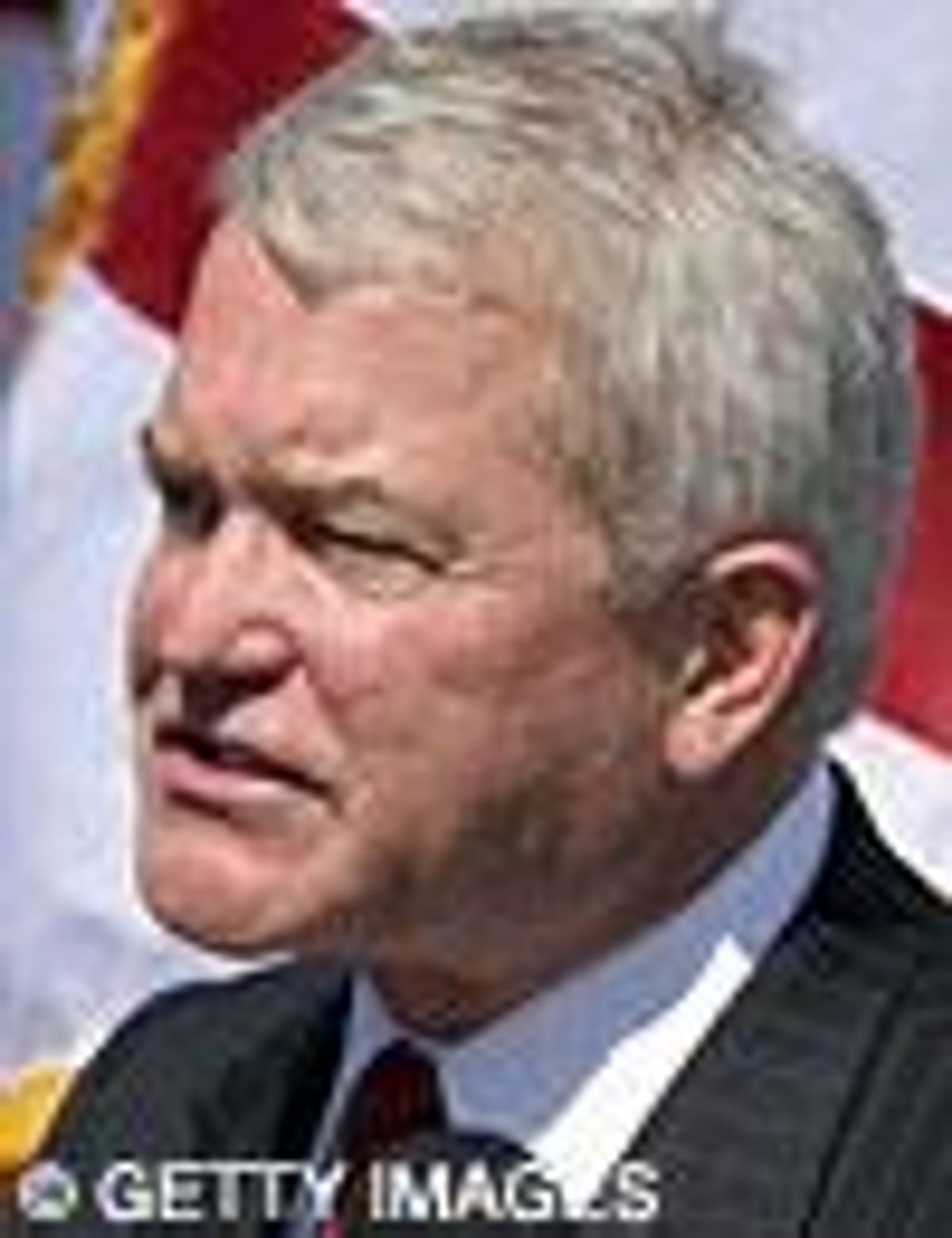The House ethics
committee reported Friday that Republican lawmakers and
aides failed to protect young male pages from former
representative Mark Foley's improper advances,
concluding an investigation into a scandal that
convulsed Congress and contributed to the GOP defeat in
November's election. The panel's report said it
found no evidence that any current lawmakers or aides
violated any rules. But it said it discovered a
pattern of conduct among many ''to remain willfully ignorant
of the potential consequences'' of Foley's conduct.
Foley, a Florida Republican, hurriedly
resigned his seat September 29 after the existence of
sexually explicit computer messages sent to teenage
pages came to light. He quickly entered an alcoholic
treatment program.
But the scandal damaged Republicans politically
and raised questions about whether House speaker
Dennis Hastert or his aides had done enough to
investigate reports of improper advances by Foley. Florida
authorities have opened a criminal investigation into
whether Foley broke any laws related to his
communications with the teens. Federal authorities are
also investigating.
The report found that Hastert was likely told
about Foley's e-mails by two Republican leaders last
spring. Hastert has said he doesn't recall the
conversations. But both Majority Leader John Boehner of Ohio
and Rep. Tom Reynolds of New York have said they
informed the speaker last spring.
''The speaker's reported statement in response
to Majority Leader Boehner that the matter 'has been
taken care of' is some evidence that the speaker was
aware of some concern regarding Rep. Foley's conduct'' even
prior to the spring conversation, the report said.
The report was the result of numerous interviews
conducted over nine weeks. Most of the witnesses
answered questions without being subpoenaed.
Representatives Doc Hastings and Howard Berman,
the committee's leaders, said the report reflected the
bipartisan conclusions of a four-member investigative
panel. ''This is not the jury-rigged result of a series of
compromises but rather the right report on this subject,''
Berman said at a news conference in the Capitol.
Some of Foley's computer messages, not the most
sexually explicit ones, came to light after the
recipient's parents contacted Rep. Rodney Alexander,
the Louisiana Republican who was the young man's sponsor in
the page program.
Apart from Alexander and his aides, the ethics
committee report said, ''No one in the House who was
involved in addressing Rep. Foley's
conduct...actually saw the e-mails. Several people were
told about the e-mails and were asked to take action
regarding them, including confronting Rep. Foley and
telling him to stop.''
''The
investigative subcommittee finds a significant number of
instances where members [of Congress], officers or
employees fails to exercise appropriate diligence and
oversight, or should have exercised greater diligence
and oversight, regarding issues arising from the interaction
between former Rep. Mark Foley and current or former House
pages,'' the report continued.
On balance, investigators said evidence supports
the conclusion that Hastert's top aide had been told
about Foley's conduct in late 2002 or early 2003. The
aide, Scott Palmer, flatly denied to reporters that he
was told that long ago. In testimony to the committee he
said, ''I believe it didn't happen. I don't have any
recollection of it.''
The report also said that another of Hastert's
aides, Ted Van Der Meid, ''should have done more to
learn about the e-mails and how they had been
handled,'' in view of earlier warnings he had received about
Foley's conduct.
Besides Hastings and Berman, the lawmakers who
participated in the investigation were representatives
Judy Biggert and Stephanie Tubbs Jones. The voluminous
report was released on the final full day of
Congress's session, meaning that any changes in the rules or
in the page program must wait until lawmakers return
to the Capitol in January. (Larry Margasak, AP)



















































































